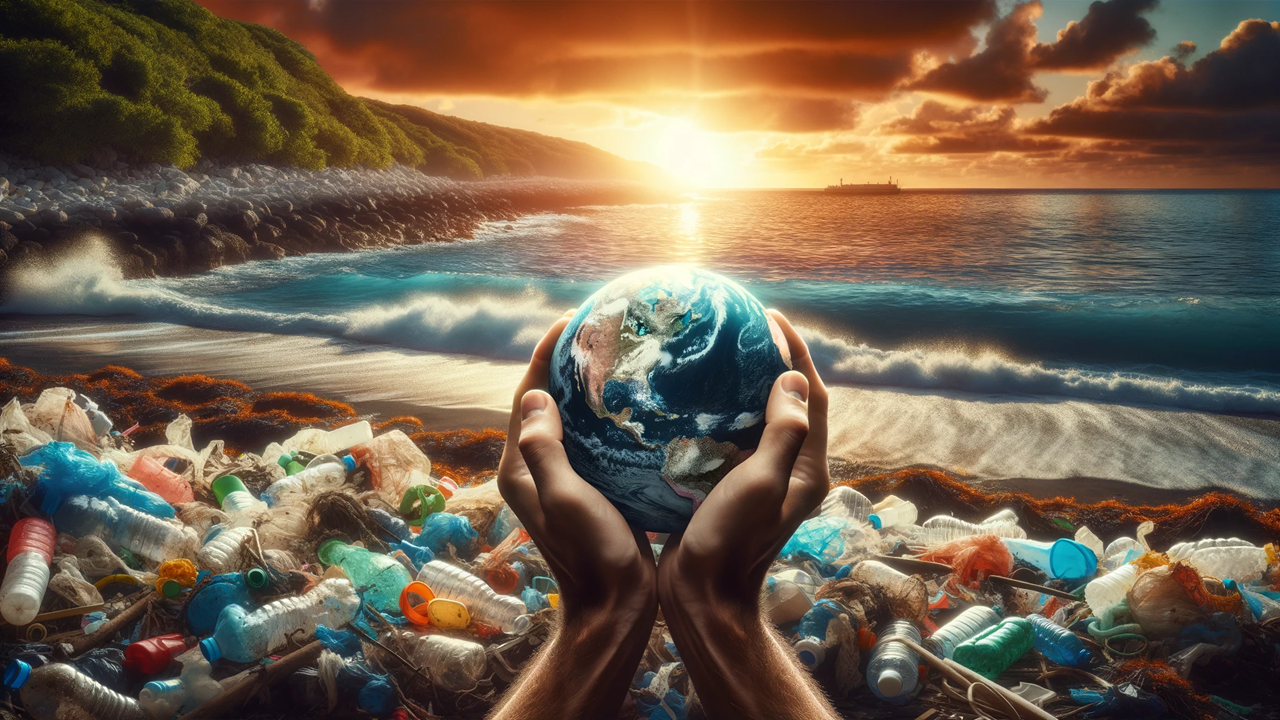Samoa is grappling with a rising tide of plastic waste, pesticides, and hazardous materials that threaten both the environment and human health, a United Nations expert warned today following an official visit to the country. Marcos Orellana, the UN Special Rapporteur on toxics and human rights, acknowledged the measures Samoa has taken to address plastic pollution, such as banning plastic bags, straws, and Styrofoam. However, he emphasized that the country is overwhelmed by the sheer volume of waste, with insufficient financial, technical, and human resources to manage the crisis.
"Samoa is at the receiving end of cheap plastic imports, banned pesticides, and used cars and tyres that it has no means to process," Orellana stated. "While Samoa is taking steps to reduce plastic waste, it cannot keep up with the growing burden." He pointed out that while the Pacific region has been working hard to combat plastic pollution, countries that produce plastics are failing to take responsibility for their contribution to the global waste crisis.
Orellana also criticized the international negotiations on plastic pollution, noting that the current direction of talks on a legally binding agreement could shift the burden of responsibility from plastic-producing countries to developing nations like Samoa. “The non-paper 3, circulated ahead of the recent meeting on a legally binding instrument on plastic pollution, risks placing the blame on developing countries that lack the resources to confront plastic waste effectively,” he said. “This shift will be catastrophic for small island states like Samoa, which already face mounting challenges.”
While acknowledging Samoa’s leadership in environmental matters, including its stance against deep-sea mining, Orellana underscored the need for global and regional cooperation to address what he described as the “triple planetary crisis” — toxic pollution, climate change, and biodiversity loss.
Orellana further called for the inclusion of the right to a clean, healthy, and sustainable environment within Samoa’s Constitution. “The enjoyment of human rights, including the rights to information, participation, and access to justice, is critical to the protection of the environment,” he explained, stressing that environmental health is essential for the full enjoyment of a wide range of human rights.
The UN expert praised several initiatives in Samoa, such as the Moana Taka scheme, a public-private partnership aimed at transporting recyclable waste to countries equipped to handle it. He also noted product stewardship schemes, including a levy on beverage containers that incentivizes recycling and proper waste management.
Orellana, however, urged the country to shift away from highly toxic pesticides such as paraquat and glyphosate, which are widely used in Samoa. “Samoa must develop a plan to phase out these dangerous chemicals and move toward less harmful pesticides and regenerative agricultural practices,” he said, stressing that the use of such pesticides poses a serious threat to both the environment and public health, especially given their link to suicide and mental health issues in Samoa.
One of the most pressing concerns raised by Orellana was the importation of secondhand cars and tires, which Samoa lacks the infrastructure to manage. The Tafaigata landfill in Upolu, the island's largest waste facility, is nearing capacity, with plastics, electronics, used cars, and other hazardous waste piling up. "What legacy will we leave for future generations in Samoa?" Orellana questioned. He also pointed out that while electric vehicles may help reduce emissions, the disposal of hazardous lithium batteries remains a significant environmental challenge.
Orellana stressed the need for greater awareness within Samoan communities regarding the health and environmental impacts of toxic chemicals and waste. He advocated for sustained public education campaigns, beginning in primary schools, to encourage better waste management practices and behavioural change. He also underscored the importance of making information accessible to the public, especially in rural and remote areas.
In his final remarks, Orellana called for immediate international action to address the environmental crises facing Samoa and other small island nations. He highlighted that toxic pollution, plastics, and hazardous chemicals not only affect the health of ecosystems but also undermine the rights of communities to live in a healthy and safe environment.
Orellana is set to present a full report on his findings and recommendations to the UN Human Rights Council in September 2025, urging the international community to take urgent and coordinated action to support Samoa and other vulnerable countries facing similar challenges.











